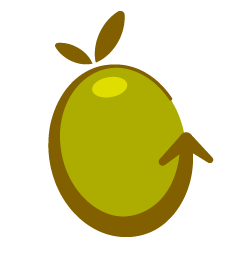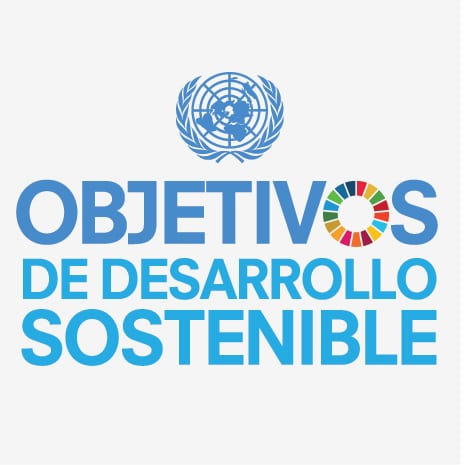 Vigilancia Tecnológica
Vigilancia Tecnológica
The future of fabrics – UPM and VAUDE think beyond recycling
UPM recognises the acute challenge faced by the textile and footwear industries to find more sustainable solutions for the polyester and polyurethane used in their products. Approximately 60% of all materials currently used by the fashion industry1 are made from fossil-based polymers. UPM will be producing new, climate-neutral materials from sustainably sourced forest biomass that will help replace fossil raw materials in the textile value chain.
UPM and VAUDE develop innovative outdoor apparel to prototype a “fossil free future”. © VAUDEIn close collaboration, UPM and VAUDE will produce the first ever fleece jacket made from wood-based polyester. A small step with big impact as it will help close the gap between recycled fibres and sustainable virgin fibres and take performance fashion beyond fossils.
The resin used to make polyester contains 30% monoethylene glycol (MEG) which is traditionally sourced from crude oil. In UPM and VAUDE’s process this ingredient will be entirely replaced with a new bio-monoethylene glycol (BioMEG), UPM’s BioPura™. BioPura™ is a drop-in solution that can be easily implemented into existing polyester manufacturing processes as it is identical to currently used MEG on a molecular basis.
Partnerships across the whole value chain are a prerequisite for enhancing sustainable innovations across various industries. In this case, Indorama Ventures, one of the world’s leading chemical companies, will polymerize and spin a polyester yarn containing UPM’s BioPuraTM BioMEG at its German site in Guben. Pontetorto, a leading textile manufacturer located in Prato, Italy, will then process this yarn into a novel, bio-based polyester fabric which VAUDE will use to produce the final garment.
“This partnership shows that transformative steps in the chemical industry towards renewable materials are possible now,” says Michael Duetsch, Vice President Biochemicals at UPM.
“We are prototyping a world beyond fossils with VAUDE, proving that the next level of sustainable textiles is available. VAUDE sets an example in breaking away from oil-based textiles and reducing emission reductions that the whole industry must follow.”
Polyester is the world’s most widely used fibre. Yet only 14.8 per cent is currently derived from recycled feedstock2, such as PET bottles. And less than one per cent of the material used to produce clothing is recycled into new clothing3. Choosing a sustainable feedstock is a great opportunity.
“Sustainability and product longevity go hand in hand: VAUDE products are characterized by a timeless design, robust materials and simple reparability. However, a product only becomes truly sustainable if it is used for as long as possible,” said René Bethmann, Senior Innovation Manager at VAUDE.
“By incorporating UPM’s bio-based materials, we are able to further explore and unlock the power of renewable circularity – to use less, source from renewable sources, and ensure the product can remain in the value chain after its useful life.”
UPM is investing 750 million Euros to build the world’s first industry scale biorefinery in Leuna, Germany. In Leuna, UPM will convert sustainably sourced, certified hardwood into next generation biochemicals that will enable the vital shift away from fossil-based to renewable materials across a wide range of industries. The biorefinery aims to produce 220,000 tonnes annually in total, with start-up targeted to take place by the end of 2023.
About UPM BiochemicalsUPM Biochemicals offers innovative, sustainable and competitive wood-based biochemicals for replacing fossil-based raw materials and helping to improve the environmental performance in various applications. End-use segments for renewable glycols include textiles, PET bottles, packaging, coolants, composites, pharmaceuticals, cosmetics and detergents. Lignin-based Renewable Functional Fillers (RFF) offer a sustainable alternative to carbon black and precipitated silica in a broad range of rubber and plastic applications. UPM is building an industrial scale biorefinery in Leuna, Germany to convert solid wood into next generation biochemicals. UPM Biochemicals is accelerating the transition to a circular bioeconomy – where renewable feedstocks, sustainable production and sustainable consumption are the new normal.
About UPMWe deliver renewable and responsible solutions and innovate for a future beyond fossils across six business areas: UPM Fibres, UPM Energy, UPM Raflatac, UPM Specialty Papers, UPM Communication Papers and UPM Plywood. As the industry leader in responsibility, we are committed to the UN Business Ambition for 1.5°C and the science-based targets to mitigate climate change. We employ 17,000 people worldwide and our annual sales are approximately EUR 11,7 billion. Our shares are listed on Nasdaq Helsinki Ltd. UPM Biofore – Beyond fossils.
About VAUDEAs a modern family-run company and Europe’s environmentally friendly outdoor supplier, VAUDE takes its social and environmental responsibility very seriously. We breathe life into this maxim in all three of our business segments: Mountain Sports, Bike Sports and Packs ‘n Bags.
We have been working with the strict environmental bluesign® standard since 2001, which controls the entire textile manufacturing chain. We were also the first Outdoor company to receive EMAS certification. We will also continue to improve our environmental performance in the future and have set ourselves the goal of gradually transforming the entire product palette so that it is manufactured according to the highest standards of environmental compatibility. We are working to make (y)our world a better place.
About the brand VAUDE VAUDE stands for respect in all its interaction with others and the nature around us. We have set our sight on becoming Europe’s most environmentally friendly outdoor brand, so that sportsmen and women of today, and those to come can enjoy nature to the fullest. We are pioneers in this way, challenging convention and pushing the limits of the possible.
VAUDE’s roots are in mountain sports. The passion we experience on the ascent and the peace we find at the top are what drive us. Without the mountains, VAUDE wouldn’t be what it is today. It is our foundation, our brand symbol, and it stands for the high expectations we place on ourselves as a company and on our products.
1 ‘Textiles and the environment in a circular economy’, European Environment Agency – November 2019.
2 ‘Preferred Fiber & Materials Market Report’, Textile Exchange – October 2022.
3 ‘A New Textiles Economy: Redesigning Fashion’s Future’, Ellen Macarthur Foundation – 2017.
UPM and VAUDE develop innovative outdoor apparel to prototype a “fossil free future”. © VAUDEIn close collaboration, UPM and VAUDE will produce the first ever fleece jacket made from wood-based polyester. A small step with big impact as it will help close the gap between recycled fibres and sustainable virgin fibres and take performance fashion beyond fossils.
The resin used to make polyester contains 30% monoethylene glycol (MEG) which is traditionally sourced from crude oil. In UPM and VAUDE’s process this ingredient will be entirely replaced with a new bio-monoethylene glycol (BioMEG), UPM’s BioPura™. BioPura™ is a drop-in solution that can be easily implemented into existing polyester manufacturing processes as it is identical to currently used MEG on a molecular basis.
Partnerships across the whole value chain are a prerequisite for enhancing sustainable innovations across various industries. In this case, Indorama Ventures, one of the world’s leading chemical companies, will polymerize and spin a polyester yarn containing UPM’s BioPuraTM BioMEG at its German site in Guben. Pontetorto, a leading textile manufacturer located in Prato, Italy, will then process this yarn into a novel, bio-based polyester fabric which VAUDE will use to produce the final garment.
“This partnership shows that transformative steps in the chemical industry towards renewable materials are possible now,” says Michael Duetsch, Vice President Biochemicals at UPM.
“We are prototyping a world beyond fossils with VAUDE, proving that the next level of sustainable textiles is available. VAUDE sets an example in breaking away from oil-based textiles and reducing emission reductions that the whole industry must follow.”
Polyester is the world’s most widely used fibre. Yet only 14.8 per cent is currently derived from recycled feedstock2, such as PET bottles. And less than one per cent of the material used to produce clothing is recycled into new clothing3. Choosing a sustainable feedstock is a great opportunity.
“Sustainability and product longevity go hand in hand: VAUDE products are characterized by a timeless design, robust materials and simple reparability. However, a product only becomes truly sustainable if it is used for as long as possible,” said René Bethmann, Senior Innovation Manager at VAUDE.
“By incorporating UPM’s bio-based materials, we are able to further explore and unlock the power of renewable circularity – to use less, source from renewable sources, and ensure the product can remain in the value chain after its useful life.”
UPM is investing 750 million Euros to build the world’s first industry scale biorefinery in Leuna, Germany. In Leuna, UPM will convert sustainably sourced, certified hardwood into next generation biochemicals that will enable the vital shift away from fossil-based to renewable materials across a wide range of industries. The biorefinery aims to produce 220,000 tonnes annually in total, with start-up targeted to take place by the end of 2023.
About UPM BiochemicalsUPM Biochemicals offers innovative, sustainable and competitive wood-based biochemicals for replacing fossil-based raw materials and helping to improve the environmental performance in various applications. End-use segments for renewable glycols include textiles, PET bottles, packaging, coolants, composites, pharmaceuticals, cosmetics and detergents. Lignin-based Renewable Functional Fillers (RFF) offer a sustainable alternative to carbon black and precipitated silica in a broad range of rubber and plastic applications. UPM is building an industrial scale biorefinery in Leuna, Germany to convert solid wood into next generation biochemicals. UPM Biochemicals is accelerating the transition to a circular bioeconomy – where renewable feedstocks, sustainable production and sustainable consumption are the new normal.
About UPMWe deliver renewable and responsible solutions and innovate for a future beyond fossils across six business areas: UPM Fibres, UPM Energy, UPM Raflatac, UPM Specialty Papers, UPM Communication Papers and UPM Plywood. As the industry leader in responsibility, we are committed to the UN Business Ambition for 1.5°C and the science-based targets to mitigate climate change. We employ 17,000 people worldwide and our annual sales are approximately EUR 11,7 billion. Our shares are listed on Nasdaq Helsinki Ltd. UPM Biofore – Beyond fossils.
About VAUDEAs a modern family-run company and Europe’s environmentally friendly outdoor supplier, VAUDE takes its social and environmental responsibility very seriously. We breathe life into this maxim in all three of our business segments: Mountain Sports, Bike Sports and Packs ‘n Bags.
We have been working with the strict environmental bluesign® standard since 2001, which controls the entire textile manufacturing chain. We were also the first Outdoor company to receive EMAS certification. We will also continue to improve our environmental performance in the future and have set ourselves the goal of gradually transforming the entire product palette so that it is manufactured according to the highest standards of environmental compatibility. We are working to make (y)our world a better place.
About the brand VAUDE VAUDE stands for respect in all its interaction with others and the nature around us. We have set our sight on becoming Europe’s most environmentally friendly outdoor brand, so that sportsmen and women of today, and those to come can enjoy nature to the fullest. We are pioneers in this way, challenging convention and pushing the limits of the possible.
VAUDE’s roots are in mountain sports. The passion we experience on the ascent and the peace we find at the top are what drive us. Without the mountains, VAUDE wouldn’t be what it is today. It is our foundation, our brand symbol, and it stands for the high expectations we place on ourselves as a company and on our products.
1 ‘Textiles and the environment in a circular economy’, European Environment Agency – November 2019.
2 ‘Preferred Fiber & Materials Market Report’, Textile Exchange – October 2022.
3 ‘A New Textiles Economy: Redesigning Fashion’s Future’, Ellen Macarthur Foundation – 2017.






